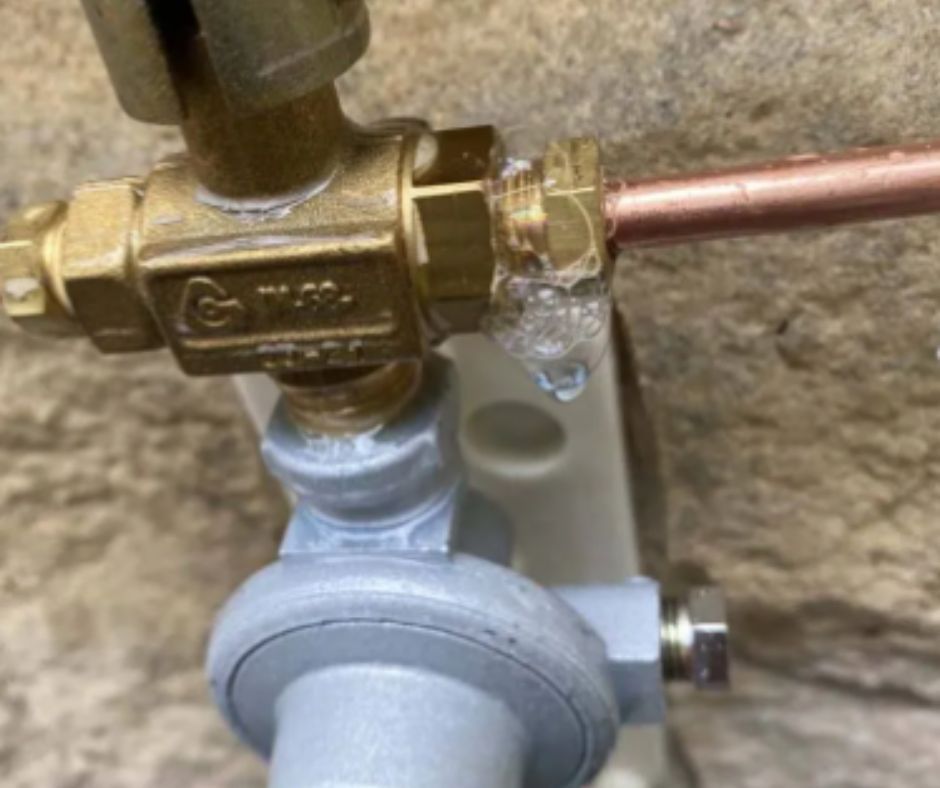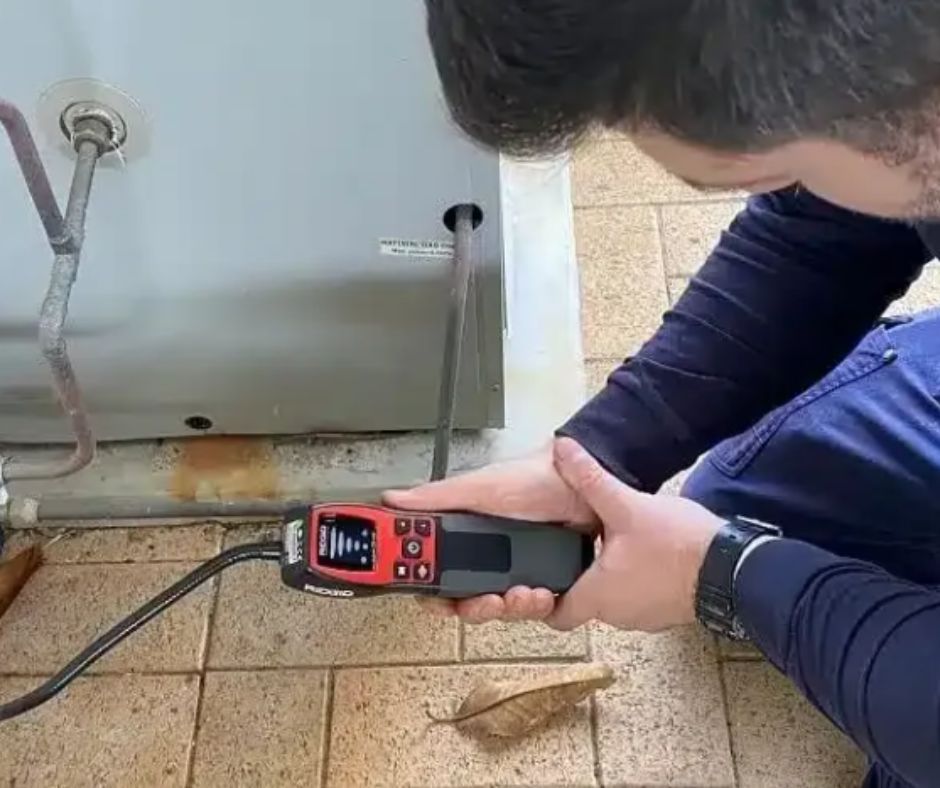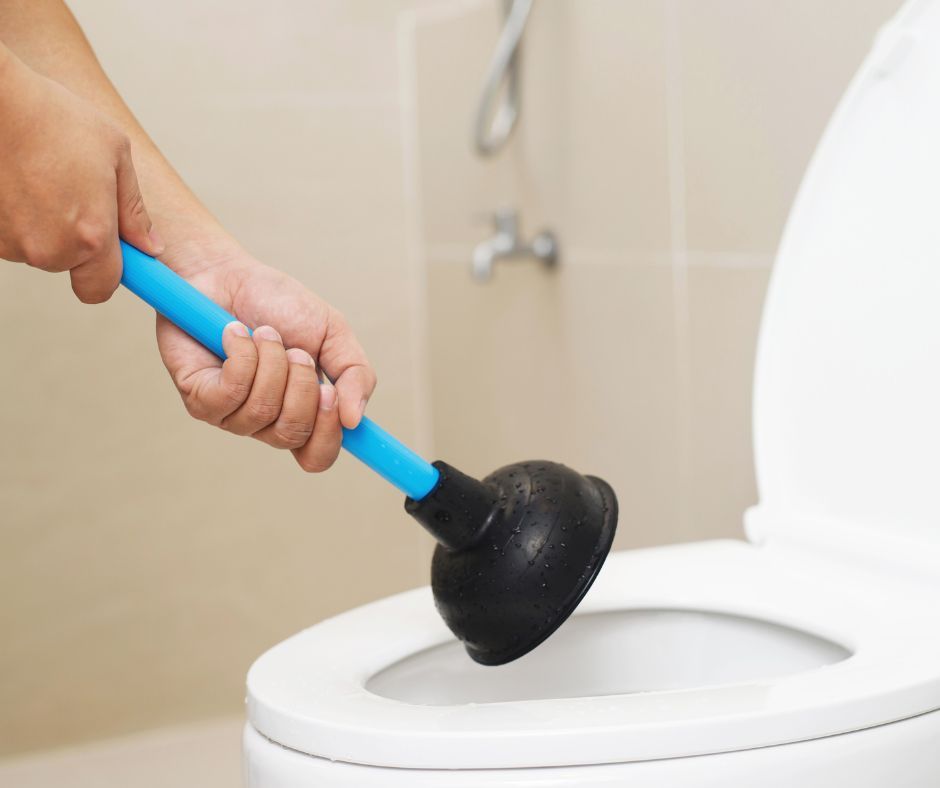Gas Leak Symptoms: How to Detect and Handle Safely
Ever caught a strange whiff of something like a rotten egg that makes you think, "That doesn’t smell right!"
Gas leaks are one of the most serious plumbing emergencies a homeowner or business owner can face. They pose risks to safety, health and property, but many people don’t recognise the warning signs until it’s too late.
Understanding how to spot gas leak symptoms early and respond effectively can make all the difference. In this guide, we’ll walk you through the key symptoms of gas leaks, their common causes and how to handle them safely.

Gas Leak Signs and Symptoms
Gas leaks aren’t always obvious, but there are clear signs to keep an eye (and nose) out for and help you understand how do you check for a gas leak:
Physical Symptoms
If you or anyone in your household experiences headaches, nausea, vomiting, dizziness, difficulty breathing or fatigue without any apparent reason, it might be due to a gas leak. These symptoms occur because gas exposure reduces oxygen in the air and leads to these adverse health effects.
Foul Odour
A distinct rotten egg smell is a tell-tale sign of a gas leak. Natural gas is odourless so companies add a chemical odourant to give it a strong, unpleasant scent to alert you to potential gas leaks.
Plants are Unhealthy or Dead
Unexplained wilting or dying of indoor or outdoor plants near gas lines can be another indicator of a gas leak. Plants are sensitive to changes in their environment and gas leaks can disrupt their growth or even cause them to perish.
Gas Flame Colour Change
Keep an eye on your gas flame. A healthy gas flame should be blue. If you notice the flame turning yellow or orange, it could signify incomplete combustion due to a gas leak or other issues.
Damaged Connection to the Gas Line
Regularly inspect gas pipes and connectors. Look out for visible cracks, corrosion or damage to these connections. Any signs of wear and tear could indicate a potential gas leak waiting to happen.
Whistling or Hissing Sound
If you hear a whistling or hissing sound near gas lines or appliances, this could be the sound of gas escaping from the pipes. This is a major red flag and should be addressed without delay.
Gas Leak Symptoms: What are its Causes?
Gas leaks don’t just happen randomly. More often than not, there are often clear reasons behind them. Take a look at what typically leads to gas leaks and how these problems can be avoided.
Faulty Household Appliances
Ageing or poorly maintained gas stoves, heaters or water heaters are common culprits of gas leaks. Regular servicing and maintenance of these appliances can prevent leaks and ensure safe operation.
Poor Ventilation
Inadequate ventilation in enclosed spaces can cause gas to accumulate, increasing the risk of a leak. Ensuring proper air circulation is crucial to prevent the build-up of gas.
Damaged or Corroded Gas Pipes
Gas pipes can suffer from wear and tear over time, accidental damage or exposure to harsh elements. Regular inspections can help identify and address any potential issues before they become serious.

How Do You Check for a Gas Leak?
Ensuring your home is safe from gas leaks starts with knowing how to detect them. Here are some effective methods to check for gas leak signs and symptoms:
Smell Test
Be alert to the distinct rotten egg odour of gas. If you detect this smell, it's essential to take immediate action.
Soap and Water Test
Apply a mixture of soapy water to areas you suspect might have a leak. If you see bubbles forming, it indicates a gas leak.
Gas Detector Devices
Invest in a gas detector to regularly check for leaks in your home. These devices can provide early warnings and enhance your safety.
Monitor Your Gas Meter
Turn off all gas appliances and check your gas meter for any movement. If the meter continues to move, it could signal a leak somewhere in your system.
How to Handle Gas Leak Symptoms
When you suspect a gas leak, it’s crucial to act quickly and efficiently to ensure your safety. Do these steps to handle gas leak symptoms:
1. Turn Off the Gas Supply
The first thing you should do when you suspect a gas leak is to locate the main valve and turn it off. This is crucial as it stops more gas from flowing into your home.
2. Turn Off All Gas Appliances
After shutting off the main gas supply, make sure all gas appliances are turned off. This includes stoves, heaters and water heaters. It helps to cut off any additional gas release from your appliances.
3. Open Windows
Ventilate your home by opening windows and doors. Fresh air will help disperse the gas and lower its concentration inside your home, making it safer while waiting for professional help.
4. Turn Off the Power Supply
To reduce the risk of any sparks that could ignite the gas, turn off your electrical power supply. This includes not only the main switches but also unplugging electrical appliances if it is safe to do so.
5. Call a Trusted Team of Gas Plumbers
Once you have taken these immediate steps, contact Eze-Flow Plumbing for professional assistance. Our experienced team is trained and certified to handle gas leaks safely and can provide quick and effective solutions. Don’t try to fix the leak yourself, professional intervention is always the sure way to guarantee your safety.
Gas Leak Signs and Symptoms: Do's and Don’ts
Responding correctly to a gas leak is crucial for everyone’s safety. Knowing how do you check for a gas leak is just as important. Follow these do's and don'ts to ensure a swift and effective resolution while minimising risks.
Do's:
- Install Gas and Carbon Monoxide Detectors
These detectors can alert you and give you time to react and ensure your family's safety. They are easy to install and can detect harmful gases that are not visible to the naked eye.
- Prompt Issue Detection and Repairs
Address any gas-related issues as soon as they arise. Regular maintenance and prompt repairs can prevent minor problems from escalating into serious hazards.
- Regular Plumbing Inspection
Schedule regular inspections for your gas lines and appliances. This proactive approach helps identify potential problems early on and reduces the risk of leaks.
- Keep Calm and Act Immediately
If you suspect any gas leak symptoms, staying calm is crucial as panicking can lead to mistakes. Follow the safety measures we outlined above and contact a professional gas plumber immediately.
Don’ts
- Turn Lights On or Off
Avoid flipping switches, as this could cause a spark and ignite the gas.
- Use Household Appliances or Ignition Sources
Steer clear of using any electrical devices or anything that could create a spark. This includes things like lighters, matches and even phones inside the house.
- Keep Doors Closed
Open windows and doors to allow the gas to disperse. Keeping them closed traps the gas inside and increases the risk of an explosion.
- Try to Repair the Leak
Gas leaks are extremely dangerous. Attempting to repair them yourself can result in serious harm. Always leave gas leak repairs to the professionals.
- Make Phone Calls Inside the House
Use your mobile phone outside to call for help to reduce the risk of sparking an ignition inside a room filled with gas.
- Assume Someone Else Will Report the Leak
Take responsibility and act quickly. Don’t assume someone else will handle it. Prompt action can prevent a small leak from becoming a major disaster.

Professional Plumbers for Gas Leak Symptoms Detection and Repair
Gas leak signs and symptoms are serious matters that require professional intervention. Call Eze-Flow Plumbing once you suspect any signs of gas leaks or need a routine check. We’re licensed and experienced in detecting and repairing gas leaks to ensure your safety. Our team is available 24/7 to provide reliable gas plumbing services in Northern Beaches and in the North Shore area.











































































































